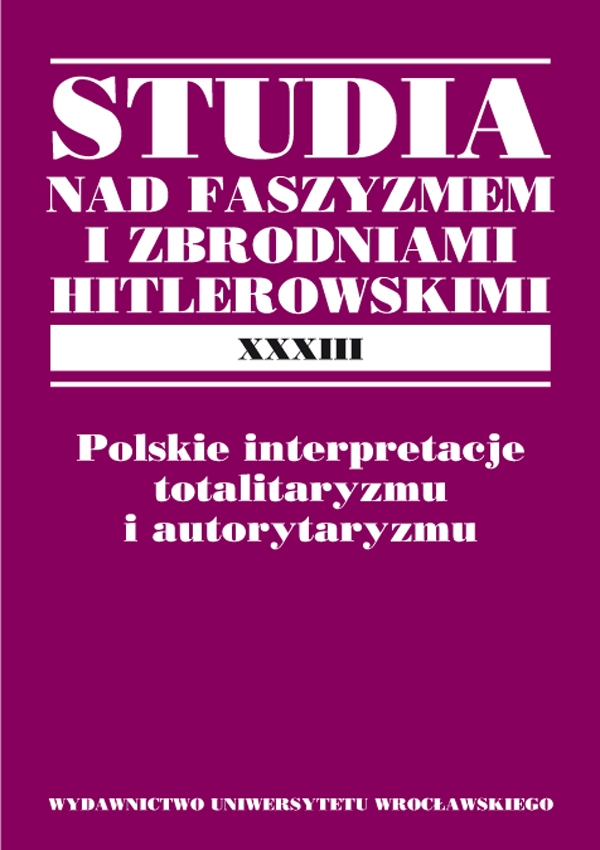

Artykuły

A THEORY OF ANTI-LIBERAL REVOLUTION. DEBATES ON “TOTALISM” IN POLISH
POLITICAL THOUGHT 1918–1939 RECONSIDERED
Interwar Polish debates on the nature of totalitarian regimes require attention and reconsideration from the long-time perspective. It permits us to discuss the early visions of the totalitarian era in statu nascendi. The authors of the first interpretations of “the totalitarian revolution” perfectly recognized the phenomenon of “anti-liberal revolution” in Europe. They tried to compare the essential similarities of Stalinist Bolshevism, Fascism and National Socialism in the framework of a vast and dynamic vision. “Anti-liberal revolution” preceded the triumph of totalitarianism. It signified the crises and decline of liberal values like the ideas of the rule of law or of individual rights. In the reality of the years 1930–1939 the shadows of the rationalist patterns of the Enlightenment were on the wane. Upon the remnants of rationalist civilization there appeared a new phenomenon — collectivist, irrational and ideocratic utopia based on force, regarded as a principal instrument of the social life. The theory of “anti-liberal revolution” appeared in Polish sovietology and was promoted by many scholars participating in the debate on “total states.” The most developed form of this conception could be found in the essays and studies written by Kazimierz Zakrzewski, historian and political writer. Among the promoters of the theory of “anti-liberal revolution” we can also include other historians, lawyers and sociologists, like Roman Rybarski, Antoni Wereszczyński, Sawa Frydman and Zygmunt Mysłakowski.